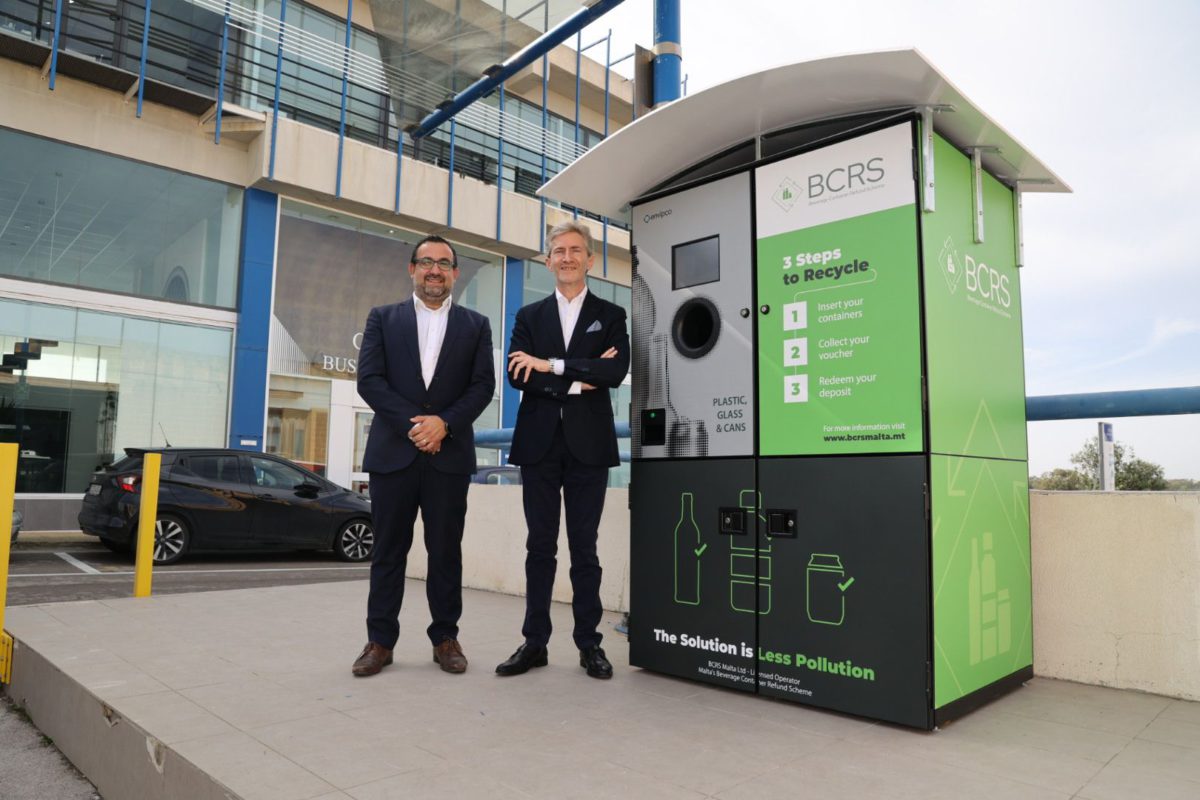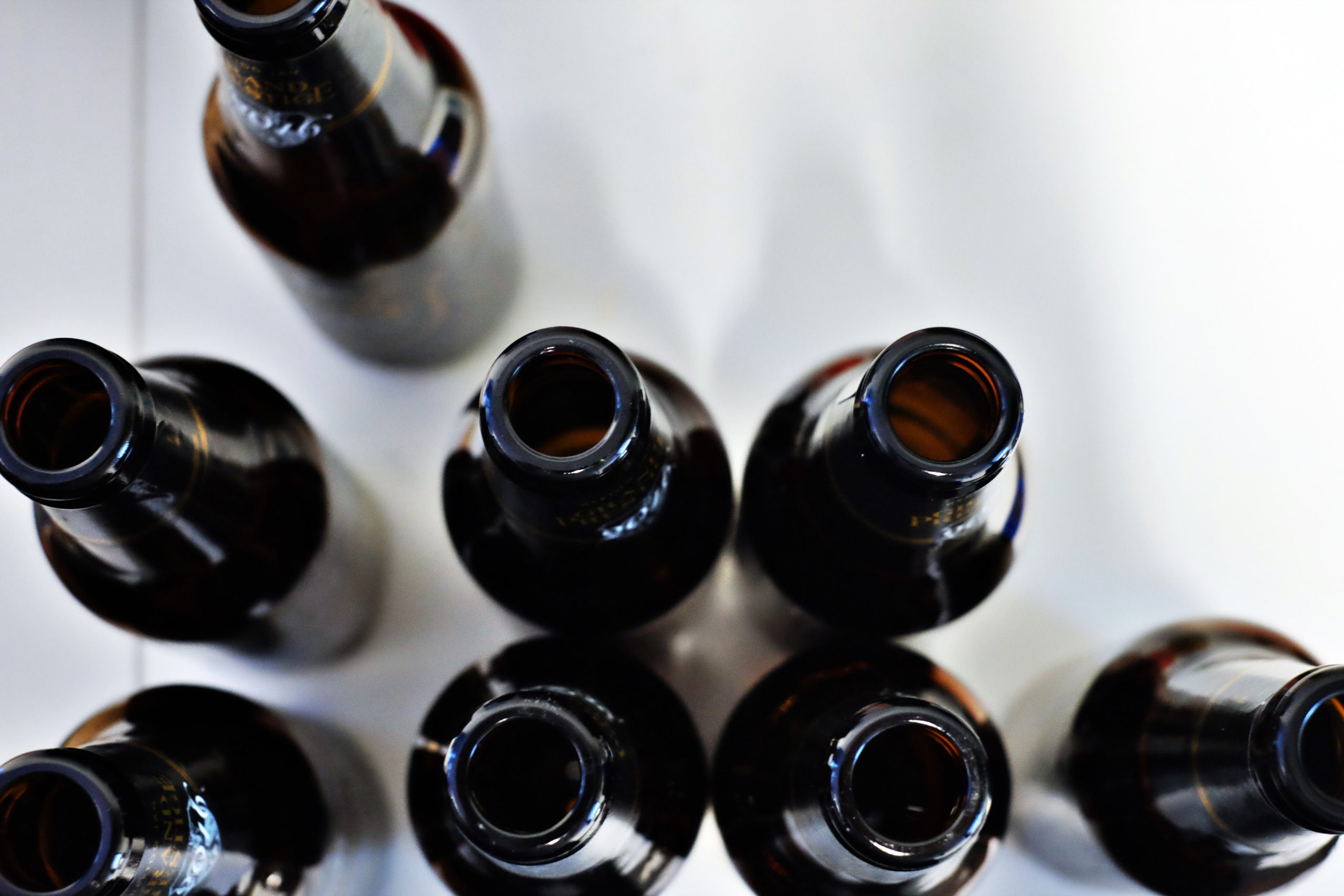The company charged with operating Malta’s Beverage Container Refund System (BCRS), BCRS Malta Ltd, has proposed the scrapping of a controversial product registration fee that several leading players in the craft beverage sector had warned would decimate their industry.
This long-awaited scheme will be operated from April via reverse vending machines, and will see consumers pay 10c per bottle upfront, then get refunded when they return said container to a machine.
However, with the implementation of the scheme looming, nine key craft beverage importers and producers warned it would decimate their business model while providing minimal benefits for the environment – due to a €100 fee required to be paid for each product brought to market.
The latest proposal of BCRS Malta would mean that participants would pay only a variable administration fee, depending on the number of containers placed on the market, thereby avoiding the disproportionate impact on craft producers and importers.
This was detailed in a letter addressed to the Minister for the Environment Aaron Farrugia, responding to a previous letter in the same vein from the concerned craft beverage producers and importers.
Registration fee
The small producers claimed that the administrative fees associated with the scheme – specifically a €100 fee per product placed on the market – would impact them due to their wide range of products disproportionately, while impacting major producers with less diversified product ranges.
Addressing this fee specifically, BCRS Malta insisted that operating the scheme would require that all products on the market are registered through their barcode, in order to drive all transactional data for that product.
In turn, the company points out that this would require a high investment in a holistic IT network that links and maintains a constantly updated national database of registered beverage containers, across the 350 reverse vending machines (RVMs) that make the scheme’s network.

The administrative demands of this, BCRS Malta contends, would translate to a registration fee that should “technically be higher than the €100 subsidised product registration fee.”
Despite this though, as aforementioned, the company is now proposing to “completely waive the payment related to product registration applicable to all operators.”
A conditional proposal
It makes this proposal, however, contingent on a number of notable conditions.
Vitally, it demands that the Government fully honours its responsibility for market surveillance and enforcement, while also ensuring that the department that launched the scheme, Circular Economy Malta, is fully resourced and equipped to effectively enforce the requirements of the new scheme.
“This is critical to ensuring that all market participants comply with their legal obligations relative to company registration, product registration and product placement reporting for the effective implementation and success of the scheme,” the company said.
Additionally, BCRS calls for the Government to “do away” with the annual licence fee of €230,000 for its first year in operation, when considering that it is subject to a licence fee which is far higher than the annual licence fee other packaging waste schemes have to pay.
It also asks that the Government would also assist and contribute on an ongoing bases towards its information and education campaigns to ensure the successful launch and continued functioning of the scheme.
Finally, it asks for a financial contribution onto the capital expenditure that it is currently embarking upon, which exceeds €17 million spent on its clearing centre, 350 RVMs, along with front-end and back-end IT systems.
It also noted that, despite being a major national circular economy initiative, the scheme has not been assigned, or benefited in any way from any EU funds whatsoever.
Clarifications
Aside from the proposal to waive the administration fee, BCRS Malta expressed a number of gripes with the initial letter.
It stated that the discussed fee is a one-time registration fee per typology, and not a recurring payment “as purported in the concerns letter.”
However, the concerns letter argues in fact that a €100+VAT fee is to be paid to BCRS Malta by every importer on each product that is placed on the market.
BCRS Malta also took issue with the fact the letter failed to mention general administration fees, where each container that falls within the scope of the scheme is charged a fee in relation to the amounts of that beverage container being placed on the market.
It stated that the more beverage containers a company places, the more it will be required to pay in administration fees.
It also added that discussions with stakeholders regarding the scheme’s implementation were ongoing, and that they had not, in fact, ground to a halt.
BCRS Malta concluded that it looks forward to continue working with all stakeholders to deliver the first tangible circular economy initiative for Malta.
What is BCRS Malta?
The sentiment of the craft beverage suppliers was that the scheme was being administered by the leading local operators, without consideration for smaller operators such as itself.
BCRS Malta is owned jointly by Malta Beverage Producers Association, Malta Beverage Retailers Association, and Malta Beverage Importers Association.
The company has on its directors board a number of prominent figures directly involved in Malta’s largest drinks companies, including beverage giant Farsons Group’s CEO, Norman Aquilina, leading wine manufacturer Marsovin’s CEO, Jeremy Cassar, and The General Soft Drinks Company CEO, Maria Micallef.
However, despite the heavy presence of representatives of some of the leading drinks suppliers in Malta, the company emphasis that the aforementioned associations “ensure through their respective statutes adequate representation of both larger and smaller market participants”.
Additionally, it stated that not-for-profit, lowest- cost principles are enshrined in its business models, to ensure that no unnecessary burdens fall on the industry and described itself as being managed on established good governance practices and transparency.
In its letter to Minister Farrugia, the company pointed out that previously, a change it lobbied for, removing the obligation of all importers and producers to place a Malta-specific barcode on all products in the scope of the scheme, was “a critically important change to ensure an equitable and level playing field.”
‘It’s still about creating a meaningful connection with customers’: Matthew Fenech, Motors Inc.
The CEO explains how Motors Inc. keeps the customer experience at the centre of its growth trajectory
MFSA flags ‘misalignment’ between objectives and public expectations of green loans
Green investment is nonetheless expected to balloon over the coming years
Super rare Ferrari Daytona SP3 spotted cruising along Malta’s roads
The car is currently being traded for a whopping €4 million






